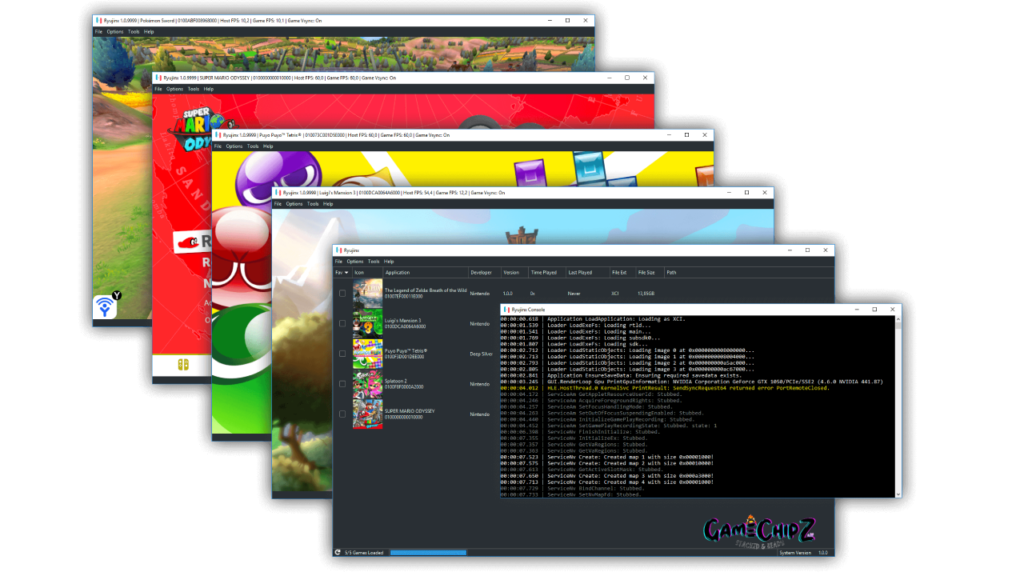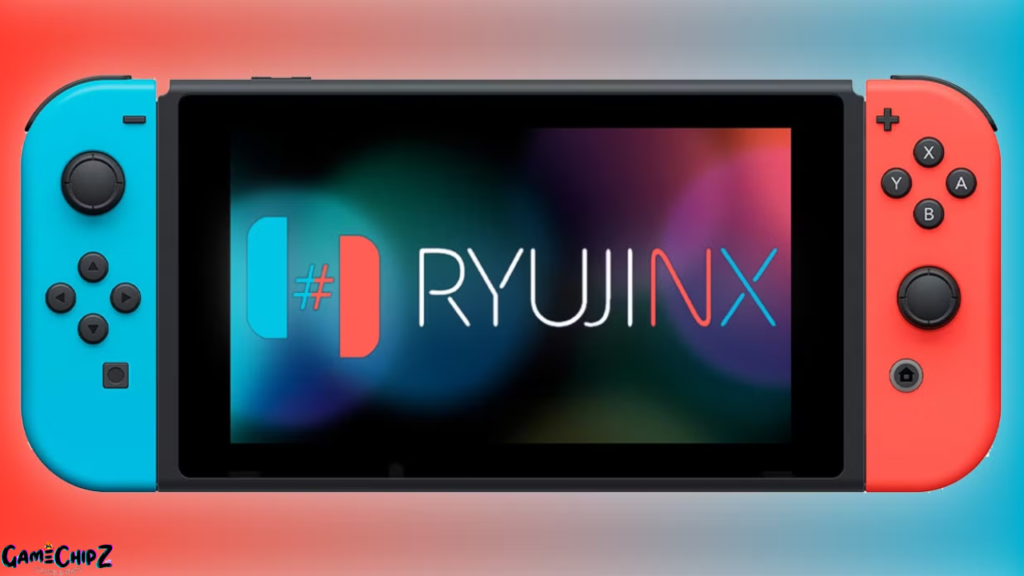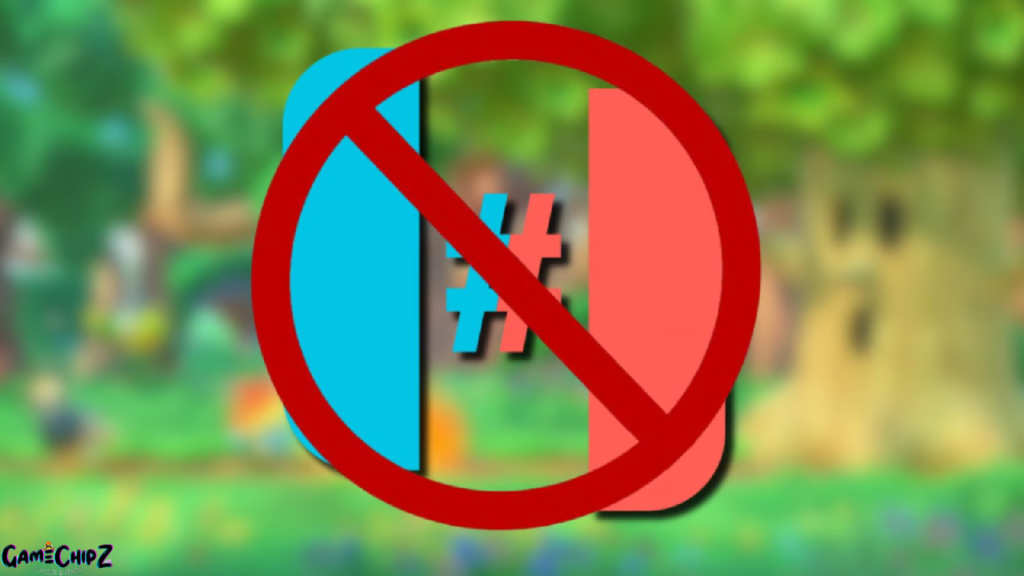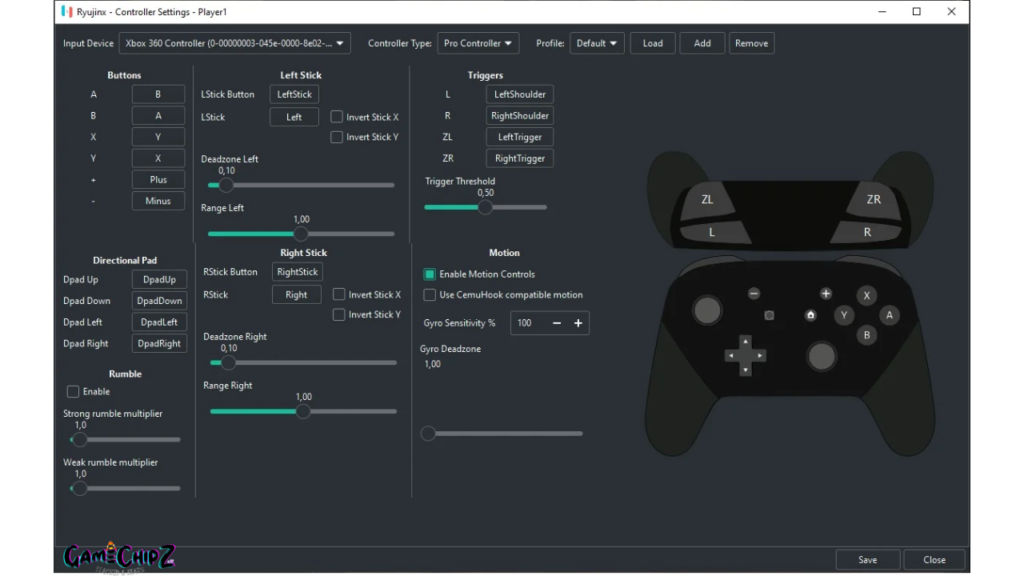The world of gaming was recently shaken when Ryujinx, a popular emulator for Switch, mysteriously went offline. For years, this software stood as a cornerstone for players who sought to enjoy Nintendo Switch games on their PCs, offering smooth performance, unmatched compatibility, and a gateway to experiences once locked behind proprietary hardware. But now, its sudden disappearance has left fans speculating—what happened, and what does it mean for the future of emulation?
Whether you’re a dedicated gamer or a curious observer, this unexpected turn of events raises questions about the delicate balance between innovation and legality in the gaming industry. Let’s dive into the story, unpacking the significance of this emulator for Switch and what its absence signals for the community at large.
What is Ryujinx?

Ryujinx isn’t just another emulator—it’s a powerhouse in the emulation world, celebrated for its ability to replicate the Nintendo Switch experience on a PC. Designed with user-friendliness and performance in mind, this emulator for Switch has gained a loyal following for its accuracy and support for a wide range of titles, from indie gems to blockbuster franchises.
At its core, Ryujinx allows players to enjoy games at resolutions and frame rates that even surpass the original console. Features like customizable controls, save states, and mod support have made it a favorite among gamers and developers alike. For those unable to afford a Switch or who simply prefer gaming on a more powerful platform, Ryujinx opened doors to a universe of possibilities.
But beyond gaming, Ryujinx served a deeper purpose. It became a tool for preserving games, ensuring that future generations could access and enjoy them even if the hardware became obsolete. It also enabled developers to test and tweak games in ways the original console couldn’t accommodate.
Its removal, then, isn’t just about a piece of software going offline—it represents the potential loss of a vital resource for innovation and accessibility in the gaming ecosystem.
Why Was Ryujinx Taken Offline?

The abrupt disappearance of Ryujinx has sparked a flurry of speculation across gaming forums and social media. While the developers behind this popular emulator for Switch have yet to provide an official explanation, several theories have emerged to fill the void.
One of the most likely reasons points to Nintendo’s aggressive stance against emulation. Known for its rigorous defense of intellectual property, Nintendo has historically targeted emulators and ROM-sharing platforms, citing copyright infringement. Could Ryujinx have been caught in the crosshairs of legal action? It wouldn’t be the first time the company has pursued legal measures to protect its proprietary games and systems.
Another possibility is a more technical issue. Emulators like Ryujinx rely heavily on constant updates to maintain compatibility with the latest games and firmware. If the development team encountered insurmountable challenges or internal disruptions, it could explain the sudden offline status.
Finally, some speculate that the takedown could be a prelude to a major overhaul or rebranding effort. Developers might be working behind the scenes to ensure the emulator complies with legal guidelines or introduces groundbreaking features.
Regardless of the reason, the void left by Ryujinx is significant. For many, it wasn’t just an emulator—it was a bridge to experiences otherwise out of reach. Its absence raises broader questions about the sustainability and future of emulators for Switch in an environment that continues to tighten its grip on digital copyright.
The Impact on the Gaming Community

The sudden disappearance of Ryujinx has sent ripples through the gaming community, leaving players and developers grappling with its implications. For many gamers, this emulator for Switch wasn’t just a convenience—it was a necessity. It allowed players to experience Nintendo Switch titles without owning the hardware, often with enhanced graphics, smoother frame rates, and added customization options.
With Ryujinx now offline, countless users find themselves searching for alternatives. Some have turned to other emulators for switch like Yuzu, which also offers impressive compatibility and features. However, switching to a new platform isn’t always seamless; differences in performance, features, and ease of use can create a frustrating experience for those accustomed to Ryujinx’s interface.
For developers and modders, the impact runs even deeper. Ryujinx was often used as a testing ground for game modifications, indie game development, and even preservation efforts. Without access to this tool, workflows are disrupted, and the ability to experiment or innovate is hindered.
Moreover, this event highlights the fragile nature of emulation projects. Unlike commercial gaming systems backed by billion-dollar corporations, emulators for switch are often passion projects maintained by small teams or individuals. Their reliance on community support and voluntary contributions makes them vulnerable to legal, financial, and technical challenges.
Despite these challenges, the Ryujinx takedown has ignited conversations about the role of emulators in gaming. While some see it as a threat to industry profits, others champion its ability to democratize gaming, preserve digital history, and push the boundaries of what’s possible in interactive entertainment.
Ethical and Legal Aspects of Emulators for Switch

The removal of Ryujinx brings the ongoing debate about emulation into sharp focus: Is it a tool for innovation or a gateway to piracy? The answer often depends on perspective, and the ethical and legal implications of using an emulator for Switch are far from black and white.
The Legal Landscape
From a legal standpoint, emulators like Ryujinx operate in a gray area. Developing an emulator for switch isn’t inherently illegal; it’s possible to create one without using proprietary code from the original console. Ryujinx, for instance, was built on reverse engineering—a legitimate method that doesn’t involve directly copying Nintendo’s intellectual property.
However, the legality becomes murkier when paired with game ROMs. For an emulator to function, it needs game files, and obtaining these files legally can be challenging. While dumping your own games from physical cartridges is legal in many regions, downloading ROMs from unauthorized sources is a clear violation of copyright laws. This duality often places emulators under intense scrutiny, even if their core purpose is legitimate.
The Ethical Debate
On the ethical side, emulators are seen by many as a means of preserving gaming history. Console lifespans are limited, and as systems like the Nintendo Switch age, so does the availability of their hardware and software. Emulators ensure that classic games don’t disappear, keeping them accessible to future generations.
At the same time, critics argue that emulators can hurt developers and publishers financially, especially when used to play current-generation games. By bypassing hardware sales and game purchases, players may inadvertently undermine the creators they wish to support.
Finding a Middle Ground
The Ryujinx controversy underscores the need for balance. Gamers want freedom and accessibility, while developers and publishers need to protect their intellectual property. Advocates suggest solutions like officially licensed emulators for switch or more accessible ways to legally purchase and preserve digital games. Until such systems are widespread, emulators for Switch and other platforms will remain at the heart of this ongoing ethical and legal tug-of-war.
The Future of Emulators for Switch
The removal of Ryujinx has cast a spotlight on the uncertain future of Nintendo Switch emulation. As the gaming landscape continues to evolve, so too will the challenges and opportunities surrounding emulators for Switch and similar platforms.
Potential for Ryujinx’s Return
While the current status of Ryujinx remains unclear, many in the gaming community are hopeful for its return. Whether it’s a temporary downtime for updates or a response to legal pressures, the development team may be working on a strategy to bring the emulator back stronger than ever. A relaunch could include enhanced features, improved legal compliance, or even a shift in focus to preserve its legacy.
The Rise of Alternatives
In the meantime, other emulators for Switch, such as Yuzu, may see a surge in popularity. These alternatives are continually advancing, with features like Vulkan support for better performance and enhanced compatibility with newer games. However, no emulator for switch perfectly replicates the user experience of another, meaning Ryujinx’s absence still leaves a gap.
Impact on the Emulation Ecosystem
Ryujinx’s takedown also serves as a warning to the broader emulation community. Developers may face increased pressure to operate within legal boundaries, prompting more focus on transparency and reverse-engineering methods that can withstand scrutiny. At the same time, the event highlights the need for stronger community support—whether through donations, development contributions, or advocacy for emulation as a legitimate tool for preservation.
Broader Implications for Gaming
Looking ahead, the future of emulation will likely intersect with broader trends in gaming, such as the rise of cloud-based gaming services and digital game libraries. If companies like Nintendo offered official alternatives to emulate or access older titles on modern platforms, the demand for independent emulators might shift significantly. Until then, emulation remains a critical tool for gamers who value accessibility, flexibility, and preservation.
The removal of Ryujinx has raised more questions than answers, but one thing is clear: the emulation community is resilient. Whether through a Ryujinx comeback, advancements in alternatives, or a broader shift in gaming culture, the legacy of emulators for Switch will continue to evolve.
How Gamers Can Stay Informed
The gaming world moves quickly, and staying updated on the status of emulators like Ryujinx is essential for those invested in the community. Here are some effective ways to keep yourself informed:
Follow Official Channels
Many emulator projects maintain official websites, GitHub repositories, or social media accounts where they share news, updates, and technical insights. Keeping an eye on Ryujinx’s official communication channels, if they resume, can provide firsthand information about its status and any potential relaunch plans.
Join Community Forums
Online forums and subreddits dedicated to gaming and emulation are bustling hubs of activity. Communities like r/emulation on Reddit or specialized Discord servers often feature discussions about the latest developments, workarounds, and alternatives for playing Switch games on PC.
Watch Trusted Tech Content Creators
Many tech-focused YouTubers and bloggers cover emulation news, providing tutorials, comparisons, and updates on tools like Ryujinx. Following these creators can help you stay on top of emulation trends and developments.
Support the Emulation Community
Consider contributing to the broader emulation ecosystem by donating to emulator developers or supporting projects that focus on game preservation. A strong, well-funded community is better equipped to withstand challenges and continue innovating.
By staying connected and informed, you can navigate the shifting landscape of Switch emulation with confidence and adapt to whatever changes come next.
Conclusion
Ryujinx’s removal marks a significant moment in the ongoing saga of emulators for Switch. As one of the most trusted tools for experiencing Nintendo Switch games on PC, its absence is felt deeply by both gamers and developers. Whether this is the end of Ryujinx or just a temporary setback remains uncertain, but its story highlights the broader challenges facing emulation projects in a world of increasing legal scrutiny and evolving technology.
For gamers, emulators represent freedom—freedom to play where and how they choose, freedom to preserve gaming history, and freedom to access experiences otherwise out of reach. At the same time, these freedoms exist within a complex web of ethical and legal considerations, which underscores the need for balance and understanding.
The future of emulators for Switch, and emulation as a whole, will depend on the creativity, resilience, and unity of the gaming community. Whether through Ryujinx’s revival, the rise of alternatives, or a cultural shift in how we approach gaming preservation, one thing is certain: emulation isn’t going anywhere. It’s evolving, and with it, the opportunities for gamers to connect with the worlds they love.
FAQ
What is Ryujinx?
Ryujinx is a popular Nintendo Switch emulator designed to allow players to run Switch games on their PCs. Known for its high compatibility, user-friendly interface, and features like save states and mod support, it’s been a favorite tool for gamers and developers alike.
Why was Ryujinx taken offline?
The exact reason for Ryujinx’s removal is currently unclear. Possible explanations include legal pressures from Nintendo, technical challenges, or the development team preparing for a significant update or rebranding.
Emulators for Switch legal?
Emulators themselves are legal when developed through reverse engineering without using copyrighted code. However, downloading or using game ROMs from unauthorized sources is typically illegal and violates copyright laws.
Are there alternatives to Ryujinx?
Yes, Yuzu is another popular emulator for Switch that offers similar functionality. However, every emulator has unique features and performance characteristics, so users may need to experiment to find the best fit for their needs.


